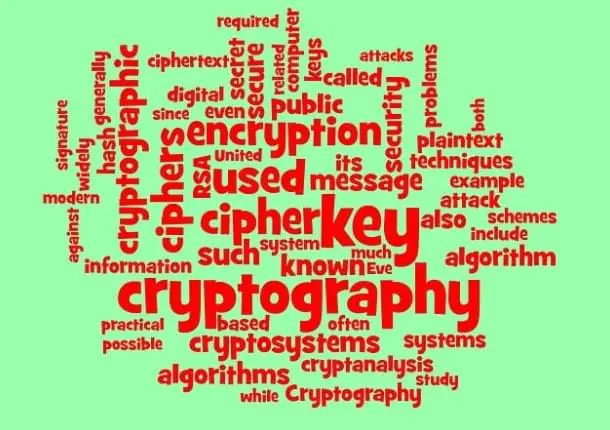In today’s data-driven world, protecting sensitive information is more critical than ever. Businesses and individuals must ensure that their data is secure, confidential, and protected from unauthorized access. Encryption technology plays a crucial role in achieving this objective. This article will discuss the importance of encryption, how it works, and its real-world applications. It will also highlight the challenges and limitations of encryption and the legal considerations that businesses face when implementing encryption technology.

Understanding Encryption and Its Importance
Encryption is a cybersecurity technology that converts plaintext, such as data or messages, into an unreadable format called ciphertext. The only way to decode ciphertext back to plaintext is by using a cryptographic key. Encryption is essential for data security because it ensures that sensitive information remains confidential, protected, and tamper-proof. It also enables secure communication and prevents unauthorized access and data breaches.
What is Encryption?
Encryption is a process that uses mathematical algorithms to convert plaintext into ciphertext. The process involves using an encryption key to scramble the original message or data. The result is an unreadable message or data that is incomprehensible to anyone who does not have the decryption key.
Types of Encryption
There are two types of encryption: symmetric encryption and asymmetric encryption. Symmetric encryption uses the same key for both encryption and decryption. Asymmetric encryption uses two mathematically related keys, a public key, and a private key. The public key is used for encryption, while the private key is used for decryption.
Key Components of Encryption
Encryption has been around for centuries, dating back to ancient civilizations, where people used various techniques to encrypt their messages. However, in modern times, encryption has become a crucial tool for cybersecurity. With the rise of the internet and digital communication, encryption has become even more critical to protect sensitive information from cybercriminals and hackers.
Encryption is used in various industries, including finance, healthcare, and government agencies, to protect sensitive data. For example, banks use encryption to secure their customers’ financial information, while healthcare providers use encryption to protect patients’ medical records. Government agencies also use encryption to protect classified information and sensitive data.
One of the most significant advantages of encryption is that it provides end-to-end security for data transmission. This means that the data is encrypted at the source and decrypted at the destination, ensuring that no one can intercept the data in transit and access the sensitive information. Encryption also helps to prevent data tampering, as any changes made to the encrypted data will render it unreadable.
Encryption is not foolproof, and there have been instances where encrypted data has been compromised. However, encryption is still the best defense against cyberattacks and data breaches. As technology advances, encryption algorithms become more robust, making it even more challenging for cybercriminals to decrypt the ciphertext without the decryption key.
In summary, encryption is a crucial tool for cybersecurity and data protection. It ensures that sensitive information remains confidential, protected, and tamper-proof. Encryption is used in various industries to protect sensitive data, and it provides end-to-end security for data transmission. While encryption is not foolproof, it is still the best defense against cyberattacks and data breaches.

The Connection Between Encryption and Data Security
Data security is a critical concern for businesses and individuals in today’s digital age. With the rise of cyber-attacks and data breaches, protecting sensitive information has become more important than ever before. Encryption technology provides an effective solution for protecting sensitive information and ensuring data security.
Protecting Sensitive Information
Encryption technology helps protect sensitive information, such as financial and medical records, passwords, and personal identification information, from unauthorized access. By using complex algorithms, encryption technology scrambles data, making it unreadable to anyone who does not have the decryption key. This ensures that if cybercriminals gain access to this data, they cannot read it or use it for malicious purposes.
For example, imagine a hospital that stores patient medical records electronically. Without encryption, these records would be vulnerable to cyber-attacks, putting patients’ personal and medical information at risk. However, by encrypting these records, the hospital can ensure that only authorized individuals can access the data, protecting patient privacy and confidentiality.
Ensuring Data Integrity
Encryption technology ensures data integrity by protecting against unauthorized modification or tampering. Encryption creates a digital signature that ensures the authenticity and integrity of the data. This signature helps businesses and individuals identify if anyone has tampered with the data.
For instance, consider a financial institution that stores customer account information electronically. Without encryption, this data could be vulnerable to cybercriminals who could modify the information to steal money from customers’ accounts. However, by encrypting this data, the financial institution can ensure that any unauthorized modifications to the data will be detected, preventing fraudulent activity.
Safeguarding Privacy and Confidentiality
Encryption technology helps safeguard privacy and confidentiality. It ensures that only authorized individuals have access to sensitive information, preventing unauthorized access and data breaches. Encryption is especially critical for businesses that store sensitive information in cloud storage or transmit data over networks where information is vulnerable to cyber-attacks.
For example, imagine a law firm that stores confidential client information in the cloud. Without encryption, this data would be vulnerable to cybercriminals who could access and use the information for malicious purposes. However, by encrypting this data, the law firm can ensure that only authorized individuals can access the data, protecting client privacy and confidentiality.
In summary, encryption technology plays a critical role in maintaining data security. By protecting sensitive information, ensuring data integrity, and safeguarding privacy and confidentiality, encryption technology helps businesses and individuals protect themselves against cyber-attacks and data breaches. As technology evolves, encryption technology will become even more important in maintaining data security in the digital age.
Real-World Applications of Encryption
Encryption technology has widespread applications in today’s digital world. Some of its real-world applications are:
Secure Communication
Encryption technology enables secure communication between individuals and organizations. It allows for encrypted email communication and encrypted messaging services, ensuring that personal and sensitive information remains confidential and secure.
For example, in the healthcare industry, doctors and nurses need to communicate sensitive patient information to each other. Encryption technology ensures that this information remains confidential and secure, protecting the patient’s privacy and complying with HIPAA regulations.
Encryption technology also plays a crucial role in the financial industry. Banks and financial institutions use encryption to secure their online banking services and protect their customers’ financial information.
E-commerce and Online Transactions
Encryption technology is critical for providing secure e-commerce and online transaction services. It ensures that financial transactions are secure and confidential, preventing unauthorized access and theft of sensitive financial information.
For example, when you make an online purchase, your credit card information is encrypted to prevent hackers from stealing it. This encryption technology protects both the customer and the business from financial fraud and identity theft. Encryption technology is also used in online banking and investment services, ensuring that your financial information is secure and confidential.
Cloud Storage and Data Protection
Encryption technology is crucial for protecting data stored in cloud storage. It ensures that data is secure and confidential, protecting against unauthorized access and theft. Encryption is also important for businesses that store sensitive customer data on their servers, protecting against data breaches and cyber-attacks.
For example, companies like Dropbox and Google Drive use encryption technology to protect their users’ data. This encryption ensures that only authorized users have access to the data, protecting it from cyber-attacks and data breaches.
Overall, encryption technology plays a critical role in today’s digital world. Its widespread use ensures that personal and sensitive information remains confidential and secure, protecting individuals and businesses from cyber-attacks and financial fraud.
Challenges and Limitations of Encryption
While encryption technology provides an effective solution for protecting sensitive information, it also poses several challenges and limitations:
Encryption Key Management
Encryption key management is a critical challenge that businesses face when implementing encryption technology. If the encryption key falls into the wrong hands, cybercriminals can use it to decrypt the encrypted data. As such, businesses must use effective encryption key management practices and ensure encrypted data’s safe storage and management.
Balancing Security and Performance
Encryption technology can affect system performance and speed. Encryption requires additional computing power and resources, which can slow down systems, affecting performance. As such, businesses must balance security needs with system performance and speed to ensure efficient data processing.
Legal and Regulatory Considerations
Encryption technology faces legal and regulatory challenges in some countries. For instance, some countries require businesses to give authorities access to encrypted data in the event of an investigation. Encryption technology also faces legal challenges as governments seek to balance national security needs with individuals’ privacy rights.
Conclusion
Encryption technology plays a crucial role in data security, protecting sensitive information, ensuring data integrity, and safeguarding privacy and confidentiality. While encryption technology poses several challenges and limitations, its benefits outweigh the risks. Businesses and individuals must use encryption technology to protect sensitive information and ensure data security while using effective encryption key management practices and balancing security needs with system performance and speed. An audit of your privacy policy and security system can assess compliance with industry standards and the level of privacy protection. Contact PPGS ™ today to learn more.
